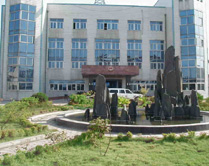 China is to start bold institutional reforms next year to do away with nearly half of the grassroots governments at village and township levels; and cut 30 to 40 per cent of the staff on the payrolls of local governments, according to a source from the State Council.
China is to start bold institutional reforms next year to do away with nearly half of the grassroots governments at village and township levels; and cut 30 to 40 per cent of the staff on the payrolls of local governments, according to a source from the State Council.
Different from other earlier reforms in local governments, the State Council plans to replace more than 40 per cent of such grassroots governments with non-government service organizations, such as associations of farmers, according to the source.
"The plan will be officially implemented after it is passed at the annual meeting of the National People's Congress in March next year; and the reforms will be completed within a year after implementation," said the source, who did not want to be identified.
The preparation and research work has been initiated jointly by the State Council and the ministries of civil affairs, agriculture, finance and construction, the source said.
"By the end of 2002, there were more than 37,896 grassroots governments at village and township levels, with more than 19 million staff paid from local budgets. In some towns and villages, more than 80 per cent of the budget is spent on such payments. Many local governments are struggling on the verge of bankruptcy or are already bankrupt," said Han Jun, director of the Rural Economy Institute of the Development and Research Centre under State Council.
Many grassroots governments even collect illegal fees from peasants to boost their budgets, Han said.
The painful, yet necessary, operation will bring local budgets out of the red; and will help reduce the burden on both farmers and the central government, according to Han.
"In order to cut down the local budgets in rural areas, the government has already cut off or merged about 30 per cent of grassroots governments in 2000. But personnel redundancy remains one of the most serious problems," said an official with the Ministry of Civil Affairs who declined to be named.
The official indicated that the goals of such reforms are difficult to achieve, saying that the number of staff rebounded quickly after the reforms of 2000 in many areas; and even the ministry does not know the accurate number of employees in grassroots governments.
With an already-high unemployment rate and an oversupply of labourers in both urban and rural areas, the results of the new round of reforms, which may leave millions of local public servants jobless, could have strong side effects, warned the official.
Some experts even predict that it is "mission impossible", saying that it may cause social instability in rural areas.
However, some experts, like Han Jun, are more optimistic.
The result of the restructure in various areas could be very different, according to Han. "In eastern and southern China, staff retrenched from local governments can find jobs in local enterprises or start their own businesses, so the local economic situation, especially the private sector, will be strengthened," Han said.
"It would be difficult for people in western, central and northern China to find new jobs," Han admitted.
However, Han said that a pilot project in Xianning County of Central China's Hubei Province last year provided promising solutions, with the county government assisting the laid-off public servants to find jobs in factories in those coastal provinces.
(HK Edition, China Daily July 15, 2003)
|

